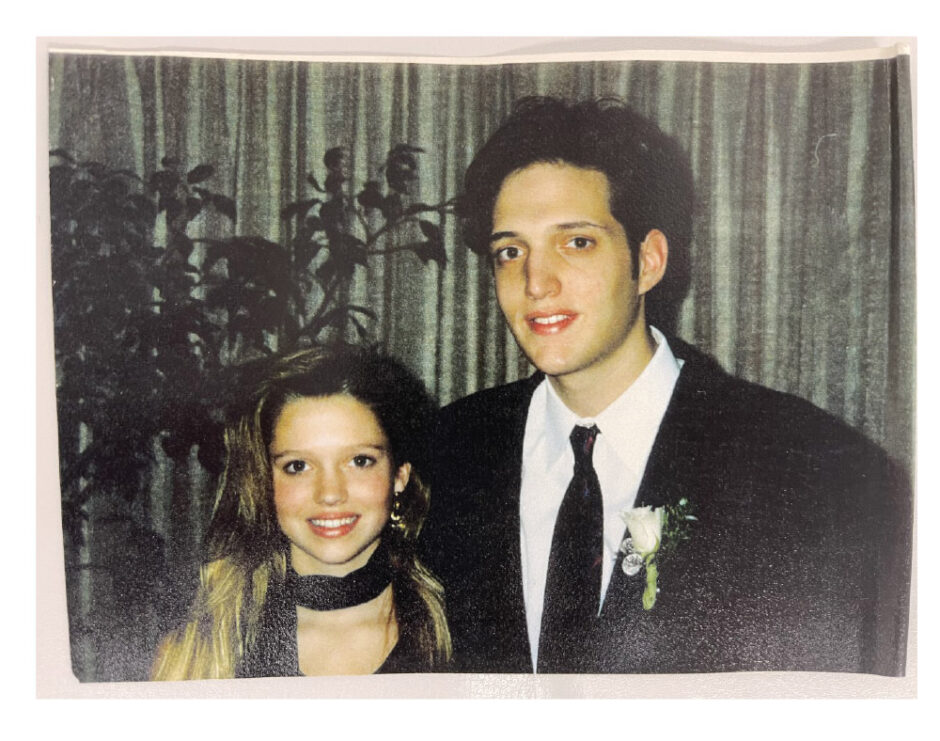
Dear Matt, I’m you, 30 years in the future. You’re 18 and about to start college at the University of Vermont. I’ve been given a chance to write you a letter offering career advice. Before I get to that, you must be wondering what your life looks like in 2022. Here’s a quick snapshot: You married Kristin and have three wonderful daughters together; you love working with your dad and brothers in the shoe business; and you live 10 minutes from where you grew up in Closter, NJ. Life is good! Now for a little bad news. Mom always said you had the thickest hair in the family. Alas, it doesn’t last. We can’t win them all.
Now for the advice…
Perfectionism: Sometimes we all feel an urge to perfect what we’re working on. But perfectionism paralyzes. It’s motivated by fear that if what you do or make fails, the failure defines you. It doesn’t. Do things. Make things. You’ll just keep getting better. Fail your way forward.
Doing What You’re Meant to Do: You’ve heard this often: Figure out what you’re meant to do and do that. Ignore this advice! Here’s what you should do: Pay attention to what works for you. What do you enjoy? What do you need to be happy? Find what feels right and then lean in that direction. Each time you lean—be it a new job, a course of study, a hobby—listen to yourself. What’s right for you? What isn’t right? Lean in the direction that’s working. It’s a long game. Listen and lean in. Keep repeating this.
Hobbies: You’ll be told that you can’t be great at both a job and a hobby. Again, ignore this advice! Greatness is extremely rare. But who cares? The pursuit of it is available to everyone. Enjoy your hobbies!
Management: Great managers identify the key roles on their team and find people who can do these roles better than themselves. Then, they create the context for their team to thrive. What else should a manager focus on? The roles only she or he can fill. For instance, prioritizing, allocating resources, problem-solving and keeping everyone aligned behind the company’s goals. A corollary to this is the saying, “Shit rolls downhill.” There’s truth in that. Though, not just the bad rolls downhill. The good should as well—accountability and praise. A more important and less acknowledged truth: The good and bad roll uphill, too. To your managers along the way—and to your peers—you’ll always own your team’s successes and failures.
Leadership: Great leaders identify the right course of action, tune out the noise and drag everyone along with them. Lincoln and Churchill, maybe the greatest leaders of their centuries, are terrific examples. It’s hard to tune out the noise and hard to keep everyone on course. But the underacknowledged strength of great leaders is that, in retrospect, they got it right. Put conversely, you can’t be a great leader when you choose what turns out to be the wrong course of action.
Other Peoples’ Motives: Matt, I know you like Citizen Kane. Remember how the reporters spend the whole movie trying to figure out why Kane whispers “rosebud” when he dies? They never find out it’s a sled from his childhood. We find out, but we don’t know for sure what it meant to Kane. Well, you’re going to know people in business who spend way too much time looking for “rosebuds.” They try to explain why someone said something or acted a certain way, and they do this by ascribing motives or intentions to them. Here’s the thing, they are almost always wrong! What motivates someone else’s behavior is often exceptionally complex—and unknowable. Don’t worry about peoples’ motives, and don’t waste your time thinking about them. It’s a recipe for distraction and exhaustion. Act and react based on what you do know, what you’ve observed with your senses and what you can verify. I promise this will save you lots of time and energy.
There’s so much more, bud. But I’m going to leave off here as I’ve given you a lot to digest. Listen to tons of music. Write lots of songs. Read as much you can. Explore the world. And, most of all, have fun! Hint: I know you will!
With love,
You



